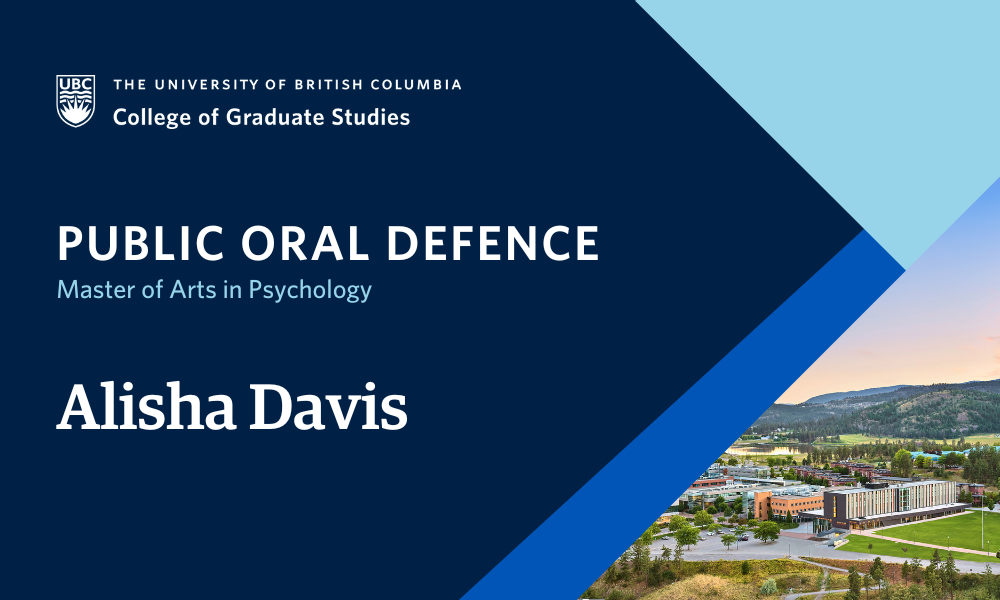
- This event has passed.
Thesis Defence: Investigating the Role of the Left Posterior Parietal Cortex in the Stages of Motor Imagery
June 7, 2024 at 1:00 pm - 5:00 pm

Alisha Davis, supervised by Dr. Sarah Kraeutner, will defend their thesis titled “Investigating the Role of the Left Posterior Parietal Cortex in the Stages of Motor Imagery” in partial fulfillment of the requirements for the degree of Master of Arts in Psychology.
An abstract for Alisha Davis’s thesis is included below.
Examinations are open to all members of the campus community as well as the general public. Registration is not required for in person defences.
Abstract
Motor imagery (MI), the mental rehearsal of movement, is comprised of the generation, maintenance, and transformation of motor images (termed the stages of MI). However, the neural mechanisms underlying the stages of MI are unknown. The current research aimed to examine the specific role of the left inferior parietal lobe (IPL), a key region involved in visually guided movement, in the stages of MI. This overall aim is addressed through two experiments: in Experiment 1, two sessions of the hand laterality judgement task (HLJT) and transcranial magnetic stimulation (TMS) were employed to determine the timing of IPL contribution to MI. TMS stimulation was delivered at three-time points (250, 500, and 750 ms) post-stimulus onset in 50% of trials, corresponding to different MI stages. Randomized, Day A involved active TMS (120% resting motor threshold), and Day B involved sham (placebo) TMS (15% over the vertex). The goal was to determine the specific contribution of the IPL to the stages of MI by evaluating performance on the MI task when stimulation is delivered to each time point relative to sham stimulation. Results from Experiment 1 showed that the IPL was involved in the transformation of motor images, as depicted by longer reaction times at the 750ms time point and overall decreased accuracy during stimulation trials. Experiment 2 follows Experiment 1, using the same experimental design except for the active stimulation condition (i.e., both sessions are sham stimulation), to explore whether task (HLJT) parameters affect performance on this MI task. Specifically, the goal was to determine if repeated exposure to the task (i.e., two sessions) and orientations of presented stimuli may lead to performance enhancements driven by increased familiarity with the task or learning. Results from Experiment 2 showed faster reaction times, with stable accuracy across blocks and sessions. Collectively, the IPL was shown to be critical to image transformations; however, when using this task to assess MI ability (i.e., in clinical domains), one should consider minimizing total trials with error (vs. reaction time) as the primary outcome. Overall, this research expands knowledge of the neural mechanisms underlying MI.